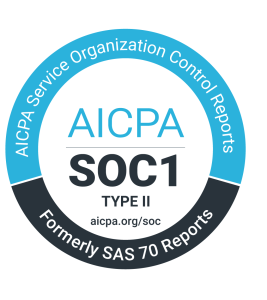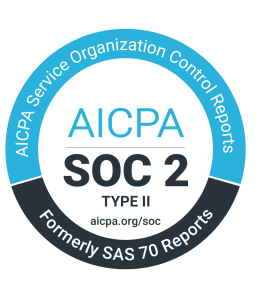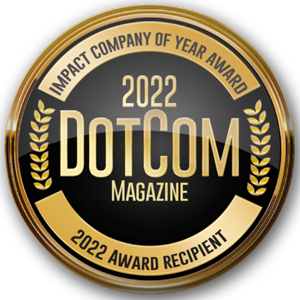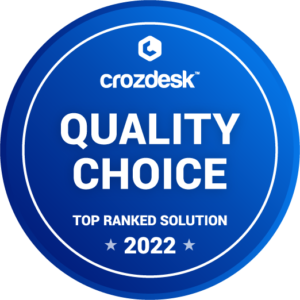First in a series on social equity programs.
One of the greatest promises of creating legal, regulated cannabis businesses is to ensure that a fair and equitable licensing system exists in which communities of color play a significant role. Commonly known as social equity programs, the intent is to help people whose lives were devastated by the failed, decades-long War On Drugs. A cannabis license and eventual business can change people’s lives and neighborhoods in the best possible ways. It’s also the right thing to do to help correct grievous past policies. The men, women, and children directly impacted by systemic, racist, and targeted law-enforcement prosecution during cannabis prohibition rightly deserve the opportunity to benefit from the emerging, legal cannabis markets. Unfortunately, all too often, it’s been a promise unfilled. Government-based social equity programs in cities across the nation are typically understaffed, underfunded, and overwhelmed. Thankfully, a first of its kind city and corporate partnership in Oakland, California may prove to be the social equity model for the nation.
Make Green Go exists to help cannabis social equity applicants build thriving businesses from the ground up by helping them obtain local and state licenses and providing business planning, training, and development. In 2017, the City of Oakland awarded Make Green Go the first-year contract to provide technical assistance for people seeking social equity licenses. The company provides unrestricted access to everything you need to know about Oakland’s Equity Program. MGG Founder La Wanda Knox brings more than 10 years of cannabis business consulting experience to the table along with her MBA from Mills College. La Wanda, her husband Zachary, and the MGG team work hand in hand with the city’s Equity Permit Program which offers equity applicants technical as well as legal assistance. Make Green Go’s contract have been renewed on a yearly basis as the program evolves to help applicants navigate the bureaucratic path ahead of them.
A Journey Fraught with Peril
Creating the regulated cannabis market in California has been derisively compared to building an airplane while it’s flying through a turbulent thunderstorm. Regulations literally change from day to day and complying with onerous local and state cannabis regulations requires fortitude, training, patience, and optimism. This is perfect for La Wanda and Zachary, an Oakland-based attorney and Former Vice-Chair of the City of Oakland’s Cannabis Regulatory Commission. They co-authored the guidebook, Medical Cannabis and Safety Act – The Ultimate Guide to California State Licenses. La Wanda is also the first Technical Assistant Consultant with a government contract to work with cannabis equity applicants in California.
La Wanda explained that one of their guiding principles is based on a sense of community. “You must use what’s available to you and surround yourself with like-minded people who have different backgrounds. Not only do you need positive messaging, but everyone needs to come together as a whole.” This is critically important as it’s easy to underestimate the complexity of obtaining cannabis licenses, setting up the business, and growing it. Without proper training and support, social equity program participants are seemingly, and perhaps unwittingly, set up to fail. The complex world of legal contracts and partners, regulatory compliance, building codes, and business finance can be intimidating and overwhelming. These are lessons that Marshall Crosby, a social equity license holder in Oakland has experienced first hand.

Marshall currently holds one of four dispensary licenses and a delivery license under his brand, The Black Card. After submitting his applications in 2018, Marshall was one of four social equity applicants to win a license via a bingo-style lottery. The Black Card company name is loosely based on ultra-exclusive credit cards available only to extremely wealthy individuals. After securing his licenses, Marshall’s initial foray into finding business partners did not turn out well, leading his attorney to threaten legal action against them. Marshall explained that “When you’re working from the bottom there is no limit to whatever you want to do. When you come out of a bad situation and you want to add credibility and you’re a whole new person, that’s how I came up with the name.”
Unfortunately, Marshall’s experience is not unusual. “When I first got involved with it, I thought you could get the license and you can just grow cannabis in your backyard, simple stuff, but it was a lot of red tape,” Marshall said. “Part of my experience is that when I started out, I thought I was going into business with very good, very nice people, but at the end of the day, they turned out to be not very good people. They left me high and dry and went behind my back and did some deals with some bigger companies.” La Wanda explained that this is exactly the kind of scenario that she hopes other budding cannabis entrepreneurs may avoid. “Number one, we want to provide Marshall with the kind of support he really needs to avoid some of these problems. And then, to get on the right track in terms of opening. What’s happened in the past is very frustrating,” La Wanda said.
Social Equity Partners and Opportunity

Make Green Go and their partners are helping to change that storyline from frustration to joy. Jocelyn Sheltraw, Director of Strategy at Headset, a leading cannabis data analytics firm, said “We have to determine what’s working and what isn’t. People need access to information and city officials often don’t communicate with their counterparts in other cities. Why not share information and build on that foundation for other cities and states?” Headset has held conferences and workshops to connect with the social equity community. Jocelyn said, “We’re all trying to figure it out, and enterprise-level partners like Headset, BLAZE, Blackbird, Green Flower Media, Vangst, Ease, and Weedmaps have all come together to help social equity businesses. It’s so very important for the cannabis community to have equitable opportunities.”
Strategy, without execution, is an opportunity wasted. To avoid that scenario, Make Green Go relies on teaching and then helping their clients implement fundamental cannabis business practices. To start, MGG and its partners provide outreach to potential equity applicants and make them aware of Oakland’s Equity Program, and how to apply for a cannabis license. The next step is assisting applicants in properly submitting their license applications. It can be an arduous process and mistakes can be costly, even possibly voiding the application. MGG helps ensure that avoidable, overlooked mistakes do not derail the applicant’s chances of success.
Assisting with the application is only a part of the services that MGG provides. They also help create business plans, as well as understanding and explaining complex state and local regulatory compliance requirements. And of course, MGG staff collaborate with city staff on adjusting and improving the Equity Permit Program. To that end, La Wanda feels that more budgetary resources are needed as program funds are typically exhausted before the program receives new funding for the following year.
“With the initial contract, we received $100,000 in a block grant. It’s increased marginally, and last year it was $150,000. We then need to plan how best to provide the services from the block grant throughout the year. It’s up to us to figure it out and provide legal services, help with license applications, compliance, and Metric training, etc. But $100,000 or $150,000 doesn’t go very far, so every year we exhaust those funds until we receive the grant funds for the next contract year. Services sometimes need to stop and this is an area that needs improvement.”
To better assist social equity applicants, Oakland offers a formal “Incubator Program” and MGG’s Equity Boot Camp includes training on how to apply for a permit. MGG also helps connect Equity applicants with General applicants who can provide free space and incubate Equity applicants. As an Incubator, a General applicant receives permitting priority ahead of the other General applicants. To qualify, the General applicant must provide three years of free rent and have access to a minimum of 1000 square feet to conduct its business operations and provide any required security measures.
To help their clients, Make Green Go provides entrepreneurship courses, capital investment strategies, crafting branding strategy, and providing information about business operations technology. In addition to one-on-one consultations, MGG hosts its annual Equity Summit & Expo, conferences, workshops, and helps permit holders network and support minority-owned businesses through The Marketplace by MGG.
BLAZE is honored and humbled to partner with La Wanda, Zachary, the entire MGG team, Jocelyn at Headset, and all our partners in this critical movement. Social equity is social justice and we’re committed to making social equity programs work for everyone. We want to see that promises are kept so that people of color keep their rightful place within the cannabis community. We can’t change the draconian, devastating past of the War On Drugs, but we can help build a better future⎼one that is shared by all.
Next in our series will be an interview with the Make Green Go team and an official from Oakland’s Equity Permit Program. We’ll take a look at how the program started, what’s working, what can be improved, and how other cities may use Oakland’s model.



